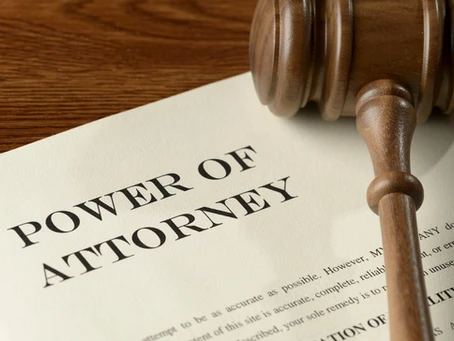


If you are lucky, you will live to a ripe, old age. But aging is not always smooth or easy. If you are considering estate planning, naming a power of attorney (POA) for personal care might be a wise choice. This is a legal document that allows you to choose someone to make decisions regarding your personal care in the event of mental incapacity. This is also known as a personal power of attorney.
What is a POA for personal care all about?
The person named for this position is responsible for a number of things.
They include:
- Treatments for your health care
- Deciding whether you should be moved to a long-term care home
- Decisions about your personal care – such as place of residence, food, getting dressed, bathing and staying safe
- Personal care services in a long-term care home
Who can do this?
The attorney for personal care must be at least 16 years old and must be your spouse, partner, or relative. If someone is providing healthcare for compensation, that person cannot be a power of attorney for personal care.
In some cases the grantor may be able to may be able to make some decisions, but not all. For example, a grantor may be able to decide on clothing and make food choices, but is not able to make decisions on place of residence. Anyone who is mentally capable and 16 years of age or older can be named as a POA for personal care.
There are many factors to consider with estate planning. There may be times when issues may get a little murky about where Ontario law stands, so getting the advice of a lawyer experienced in estate planning may be helpful. Estate planning does not have to be difficult as long as you have the right legal support.
